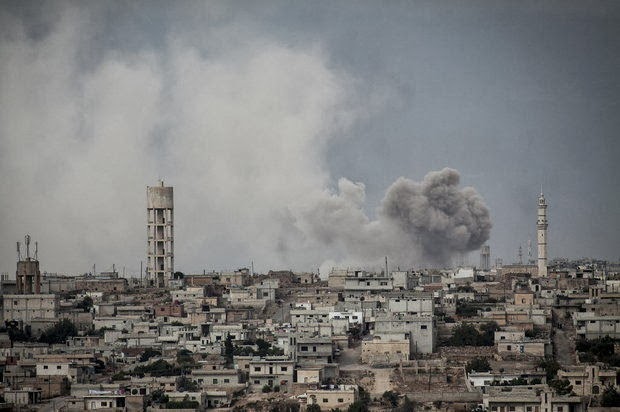
Growing up in war-torn Lebanon in the 1970s and 1980s, my family was on the side of Beirut that liked, or rather loved, America and Americans. (Yes, there is such a place in the Middle East, or at least there was.)
What we knew came from television and movies, but what we felt came from somewhere inexplicable. At least in my family, we always knew America, with its people, technology, culture and of course political clout, was an amazing place.
We felt there was little America and Americans couldn't do and we desperately needed them to do something to save us from our miserable, fearful existence.
In the dark, long days and nights of the Lebanese civil war, we longed for America to come to our aid. And America came twice. Once America came in the form of the US Marines. They were so welcomed, admired and truly adored (by many) until one fateful morning in 1983 when those doing the bidding of the Syrian and Iranian regimes killed 241 of them and put an end to their comforting, hope-inspiring presence.
 |
| Beirut Memorial at Camp LeJeune |
But as the war raged on, America stopped coming.
Then later in 1984, on a rare, quiet spring morning after a sleepless night of shelling, my parents woke me and my siblings to ask us one question: If we could leave for the United States, would you want to go? The answer was a quick and unanimous yes. After trips to the U.S. Embassy and the American University of Beirut Hospital, we were awarded visas and cleared for travel to the U.S. Little more than two months later, we had sold almost everything we owned, said our goodbyes and were on our way.
And so we came to America.
What we found in America was much more than what the world sees in movies and on television. We found a people with a generous spirit and unlimited kindness; we found endless potential for those who dare to dream and limitless results for those who work on their dreams. We found a place with plenty of bad and more of the good, a place always evolving to become a better version of itself, a place where the future holds enormous promise. Simply put, we fell in love with this amazing country.
I am so grateful for all that I found and I'm even more grateful for the freedom from the fear that dominated my childhood. Almost 30 years later, I believe now more than ever that there's little America and Americans can't do.
But as much as I love this country, I'm filled with sadness as I look at the devastation in Syria. I'm sad and appalled that America hasn't come for the Syrians as it came for us. I worry that Syrians who survive this insane war may never know the America I found. I worry that by walking away from the people of Syria and allowing hundreds of thousands to be killed and millions to be displaced, America itself is diminished. My America is better than that. I still have hope that she will live up to her own standard of greatness, and I pray the Syrian people will see and feel this greatness first hand.

